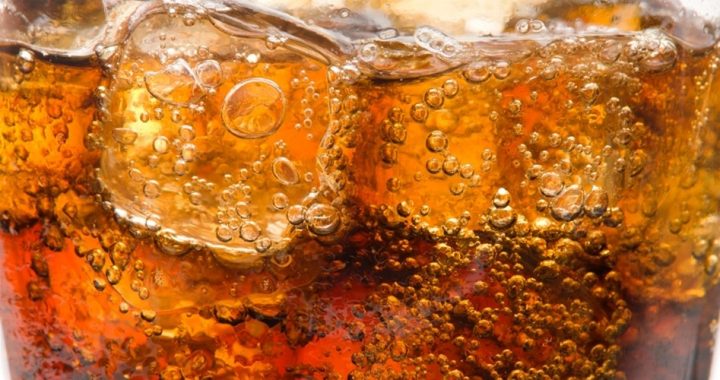
A Seattle “sweetened beverage tax” has caused prices to skyrocket on popular drinks. And while many doctors say Americans should avoid sugary drinks, the tax is a prime example of the “Nanny State” gone mad and is likely to fail like its many predecessors.
CB 118965, which went into effect on January 1, places a tax of $0.0175 (or 1.75¢) per ounce on sugary beverages such as sports drinks, iced teas, sodas, and “other products with added caloric sweeteners.” Exceptions were outlined for beverages “consisting of 100 percent natural fruit or vegetable juice with no added sweetener,” drinks with fewer than 40 calories per 12 ounces, and diet drinks that use zero-calorie artificial sweeteners, despite evidence that these drinks also have a negative effect on consumers’ health.
Businesses in Seattle with a “worldwide gross income” between $2 million and $5 million annually are taxed less, at $0.01 (1¢) per ounce.
KIRO7 reports that the extra revenue raised as a result of the tax has been allocated to several programs, including scholarships and food banks.
The tax has not gone unnoticed. According to a tweet by KIRO7 Seattle’s Deedee Sun, a 35-pack of 16.9-oz. bottles of Gatorade, which retails for $15.99 at a local Costco, now comes with a $10.34 tax. Stores such as Costco have now taken to reminding customers that they can buy the same products at several other locations without having to pay the sweetened beverage tax.
And still, the city council refuses to acknowledge that the tax will hurt local businesses.
When asked this very question, city council member Lorena Gonzalez replied, “We did not see any data that really shored up the argument that this hurts local businesses.”
Healthy Food America’s executive director, Jim Krieger, M.D., made a similar claim: “There’s not a lot of cross-border shopping. People realize its not worth [their] while.”
But according to the Daily Wire, there is plenty of evidence to suggest otherwise. When Philadelphia passed its own sweetened beverage tax in 2017, soda sales in grocery stores plummeted by 55 percent, while sales of those items outside of the city rose by 38 percent.
A survey by the Philadelphia controller’s office showed that hundreds of businesses suffered as a result of the tax:
A total of 650 businesses [out of approximately 750 that responded] reported a decline in year-to-year revenue, including 400 establishments that attributed “most” or “all” of their losses to the 1.5-cents-per-ounce tax. Most of these business owners said the revenue loss was greater than 10 percent and that they had to modify their product lines to adjust to the consumer response.
Similar trends were seen in Berkeley, California, which implemented its own soda tax in 2015, Spectator Health reports. Sugary drink sales dropped in the city by 9.6 percent, while they increased in neighboring areas by 6.9 percent. And one study revealed that despite the tax, Berkeley residents were consuming the same quantity of sugary drinks.
In Chicago, the soda tax was so unpopular that it was repealed just months after it went into effect last year. According to the Chicago Tribune, it was “one of the more villified public policies in recent memory.” When the tax was approved by the Cook County Board, it came in by a margin of 9 votes to 8, but by the time it was repealed, the vote was 15 to 1.
This sort of tax has even failed internationally. Spectator Health notes that Denmark’s “fat tax” of 2011-2012 had strong public support before it actually became reality, and by the time it was repealed, 80 percent of Danes were against it. Danish shoppers had actually taken to shopping in Sweden and Germany to avoid the tax, and Danish domestic retailers were hurt.
Consumers do not want to be told by their own government what they should and should not eat or drink, and despite lawmakers’ best intentions, study after study reveals that taxes to control consumer behaviors are ineffective. As noted by Cecil Bohanon, professor of economics at Ball State University, and Bill Styring, economist and independent researcher, “The trouble with social-engineering schemes is that those being engineered have free will and an arsenal of ways to avoid the will of the nanny.”
Furthermore, these taxes often make exceptions for sugar-free drinks that use unhealthy sugar alternatives, as well as sugar-laden fruit juices, underscoring once more that, by and large, government officials have very little knowledge about health and should refrain from pretending they do. Unless, of course, such taxes are not really about making consumers more healthy, but about raising more government revenue.
But should anyone, especially the liberal population of Seattle, really be surprised by such a tax? After all, if citizens expect the government to pay for their healthcare, do they really think that same government will let them live however they chose? Government has become the parent, taking care of the children and dictating how they eat and drink.
At any rate, Americans should have the right to make their own decisions when it comes to eating habits. Instead of attempting to control what citizens consume, lawmakers should be eliminating taxpayer-funded health insurance plans that force American taxpayers to pay for the poor health choices of other Americans.




